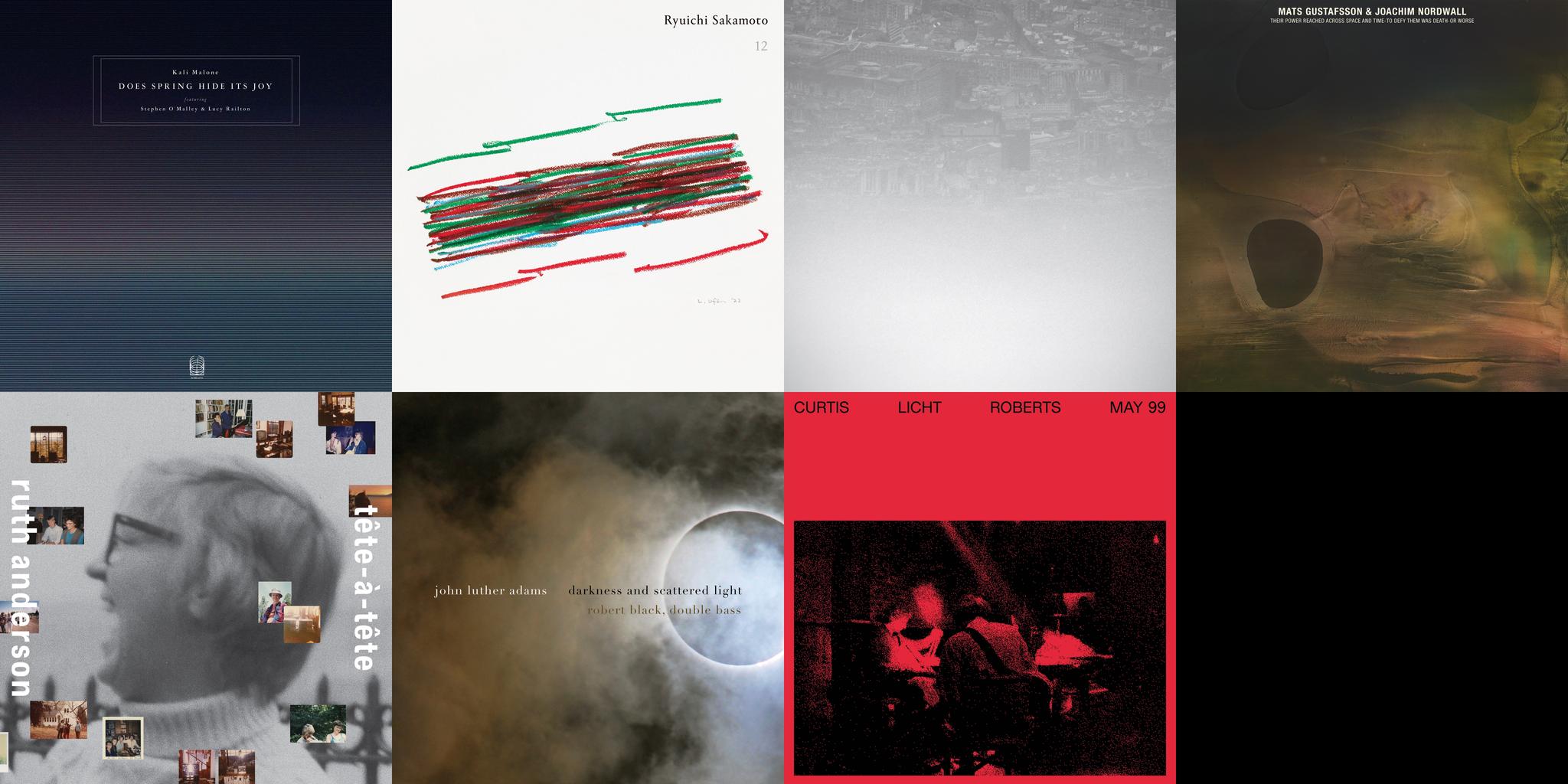
Stereogum's 10 Best Experimental Albums of 2023
In a year where tentpole superhero movies are scored by Haxan Cloak and third-world ambient-jazz woodwind opuses are released by André 3000, does the phrase “experimental music” even remotely carry any weight in 2023? As always, the answer is “Look, I clicked the link, please just tell me about some albums I can listen to at work.” Here are my personal picks for the year’s best in drone suites, improv throwdowns, archival treasures, alien soundscapes, modern classical and more.
Published: December 15, 2023 14:59
Source

Kali Malone’s 2019 album, *The Sacrificial Code*, was one of those unusual LPs that made hardcore minimalism sound as simple and intuitive as folk music. Recorded with cellist Lucy Railton and sunn O))) guitarist Stephen O’Malley, *Does Spring Hide Its Joy* is, effectively, a lattice of overlapping drones whose longest performance (there are three included here) runs for three hours. The fundamental question with music like this, then, is when and how do you listen to it? All at once or in pieces? As background or as the object of attention? From a performance standpoint, the album is an incredible feat of patience and sensitivity. But you figure part of what has made the Denver-born, Stockholm-based Malone the People’s Minimalist is her emotionality, which grounds the music’s conceptual aspirations in feelings—melancholy, reflection, sublimated longing—anyone can understand.

There’s a haunting intensity and rare poetic beauty about Ryuichi Sakamoto’s blend of ambient sounds, stripped down to the bare essentials of melody and rhythm. And for all its simplicity, this is an album that is profoundly moving. His dozen pieces, created spontaneously in March 2021 during the early stages of convalescence from major cancer surgery, speak of life’s fragility and of music’s power to comfort, console, even to heal. It feels almost intrusive at first to listen to what originated as private musical thoughts, conceived on synthesizer and piano out of an innate need for the presence of pure, unadorned sounds. Sakamoto’s choice of 12 favorite sketches, each named for its date of composition, charts the stages of his recovery, from pieces infused with his labored breathing to a sublime final sequence of impressionistic miniatures.

The latest by Canadian composer Tim Hecker serves as a beacon of unease against the deluge of false positive corporate ambient currently in vogue. Whether taken as warning or promise, No Highs delivers – this is music of austerity and ambiguity, purgatorial and seasick. A jagged anti-relaxant for our medicated age, rough-hewn and undefined. Morse code pulse programming flickers like distress signals while a gathering storm of strings, noise, and low-end looms in the distance. Processed electronics shiver and shudder against pitch-shifting assemblages of crackling voltage, mantric horns (including exquisite modal sax by Colin Stetson), and cathedral keys. Throughout, the pieces both accrue and avoid drama, more attuned to undertow than crescendo. Hecker mentions “negation” as a muse of sorts – the sense of tumult without bombast, tethered ecstasies, an escape from escapism. His is an antagonism both brusque and beguiling, devoid of resolution, beckoning the listener ever deeper into its greyscale alchemies of magisterial disquiet.



